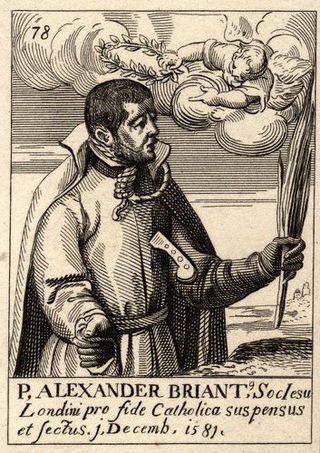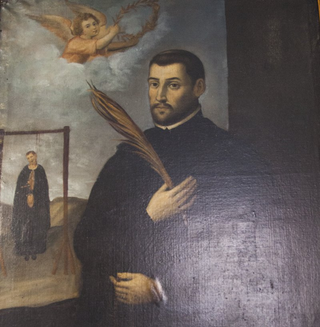Richard Kirkman
Richard Kirkman was born at Addingham in the West Riding of Yorkshire. [3] He arrived at Douai in 1577 and, after the transference of the English College to Reims, [4] he was ordained subdeacon there, along with Richard Thirkeld, on 14 March 1579. Kirkman was ordained priest on the following Holy Saturday. He said his first Mass in the Abbey Church of the Benedictine nuns of St. Peter's.

He left for the English mission on 3 August 1579, with Alexander Briant and three others. On his return to England in August he seems to have found a refuge with Robert Dymoke, hereditary Champion of England (died in Lincoln gaol for his faith, 11 September 1580), at Scrivelsby, Lincolnshire. Kirkman was represented as a schoolmaster for Dymoke's sons. He laboured for four years on the English Mission. When Dymoke was arrested on the charge of recusancy, Kirkman fled north. Being questioned as a stranger in those parts, he was eventually arrested near Wakefield on 8 August 1582 by Francis Wortley of Wortley, JP, and seems to have been arraigned a day or two after under 23 Eliz. 1. c. 1. After condemnation the two priests shared one cell in a turret till 10 August, when Kirkman was removed to an underground dungeon. He was executed on 22 August 1582. [5]









